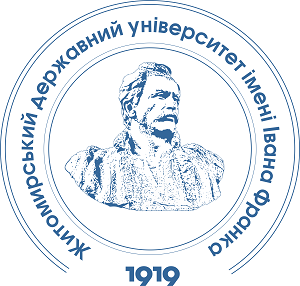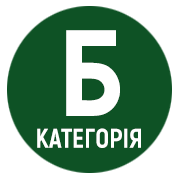THE INFORMATION SPACE OF UKRAINE IN THE CONTEXT OF HYBRID WARFARE
DOI:
https://doi.org/10.32782/psy-2023-2-3Keywords:
war, locus of control, apperception of the future, information spaceAbstract
The article presents a theoretical analysis of the problem of the impact of hybrid warfare on society. The main strategies of ideological and cultural influence of the enemy on the mass consciousness of people are highlighted. We have established that a conventional war in the conditions of the information society has no expediency and cannot lead to a constructive result. War in modern conditions is an archaic phenomenon, therefore the entire civilized world condemned Russia's armed aggression against Ukraine. One of the tasks of the hybrid war is to disrupt the objective perception of the world, distort the surrounding reality and make people despair in the future. In the conditions of the Ukrainian-Russian war, the informational and ideological confrontation did not give the Russians success on the battlefield, on the contrary, the beginning of the conventional war was the result of a loss on the informational front. The article describes the results of research into the locus of control over the future of Ukrainians who have not left the territory of Ukraine since the beginning of the war. One of the components of the apperception of the future is information resources that help a person to construct reality in the near and far perspective. According to the results of the survey, Ukrainians perceive the future positively, even in conditions of war. The subjects were found to have an external locus of control and a tendency to rely on themselves in solving life tasks. The main information resources used by the researched for a positive apperception of the future are sources that distribute not objective, but desired information. One of the factors that leads to the destabilization of the apperception of the future is the long-term lack of connection of the individual with the information space, which disappears after the long-term mass missile strikes on the critical infrastructure of Ukraine by Russia. Information and access to it is one of the basic needs of an individual to maintain a positive perception of objective reality and counteract the negative perception of the consequences of war. The research used informational materials that were created after the start of a full-scale war between Ukraine and russia. Based on the results of the research, we found that topics related to military events or facts that illustrate victory over the enemy are popular among youth and early adulthood. Such texts evoke strong positive emotions in the researched. The topics of war in the information space distort the perception of reality and form an inadequate attitude towards the war and its consequences. Content that is related to aggression, military victories, casualties from the enemy causes more interest than topics that are not related to war. Militarily neutral topics are perceived as emotionally neutral and of little interest. As a result, Ukrainian society becomes oriented towards the consumption of information of a military nature, which affects the media market. War becomes an adequate period of society's functioning, and its methods become a norm of social life, which poses a significant danger for ensuring the mental health of Ukrainian society. Spending a significant part of time for the consumption of militarized content, the subject of information relations becomes a participant in the war at the level of media texts, audiovisual content and involvement in digital activity. In the post-war period, Ukrainian society will need psychological demilitarization of many spheres of social life. Not only military personnel who have certain psychological training, but also ordinary citizens became participants in military events. It is they who do not have an adequate idea of war and its consequences, they consider it an adequate and socially acceptable way of resolving conflicts.
References
Гурлєва Т. С., Журавльова Н. Ю. Довіра до себе як важливий атрибут стресостійкості особистості в умовах інформаційної війни: взаємозв’язок понять. Вчені записки ТНУ імені В.І. Вернадського. Серія: Психологія. 2022. Том 33 (72), № 4. С. 76–82.
Дорошкевич А. С. Гібридна війна в інформаційному суспільстві. Вісник Національного університету «Юридична академія України імені Ярослава Мудрого». Серія: Філософія, філософія права, політологія, соціологія. Харків : Право, 2015. № 2(25). С. 21–28.
Кириченко В. В. Зміни стереотипів міжетнічного сприйняття українців північно-західного регіону в період з 2002 по 2015 рік. Studia Politologica Ucraino-Polona. Випуск 6. Житомир-Київ-Краків : Вид. О.О. Євенок, 2017. C. 137–144.
Кириченко В. В. Особистість у сучасному інформаційному суспільстві. Житомир : Вид-во ЖДУ імені Івана Франка, 2020. 245 с.
Кириченко В. В. Психологічний аналіз медійного дискурсу російсько-української війни. Габітус. 2022. Випуск 41. С. 239–244.
Кириченко В. В., Савиченко О. М. Genocides in the collective memory of ukrainians: the psychological practice of coping. Десятий Міжнародний Симпозіум з Мультидисциплінарного Вивчення Пам’яті «Пам’ять геноцидів / Геноциди пам’яті», 13-14 жовтня 2022, Інститут соціальних і гуманітарних наук «Альфонсо Велес Плієго» Заслуженого Автономного Університету Пуебла (Мексика) і Науково-дослідний інститут Історичної урбаністиким. URL : https://view.genial.ly/63465456d1252f0011938b12
Магда Є. В. Гібридна війна: вижити і перемогти. Харків : Віват, 2015. 304 с.
Сапольскі Р. Біологія поведінки. Причини доброго і поганого в нас / пер. з англ. Любенко. Київ : Наш Формат, 2021. 672 с.
Anderson E. C., Carleton N., Diefenbach M., Han P. K. J. The Relationship Between Uncertainty and Affect [Electronic resource]. Frontier Psychol., Sec. Theoretical and Philosophical Psychology. 2019. November, 12. https://doi.org/10.3389/fpsyg.2019.02504
Han P. K. J., Klein W. M. P. P., Arora N. K. Varieties of uncertainty in health care: a conceptual taxonomy [Electronic resource]. Medical Decision Making. 2011. Vol. 31, Is. 6. P. 828–838. https://doi.org/10.1177/0272989X10393976






